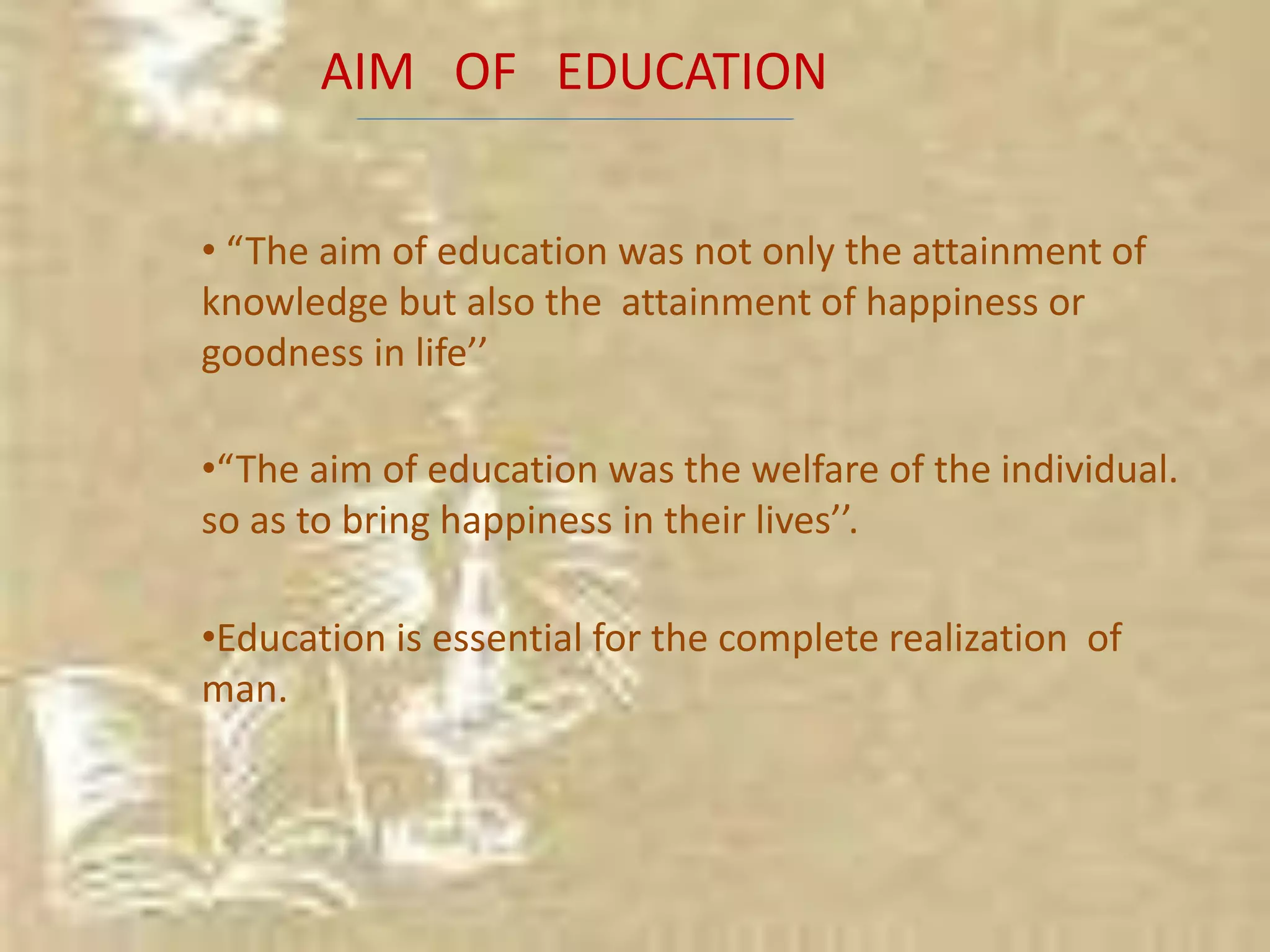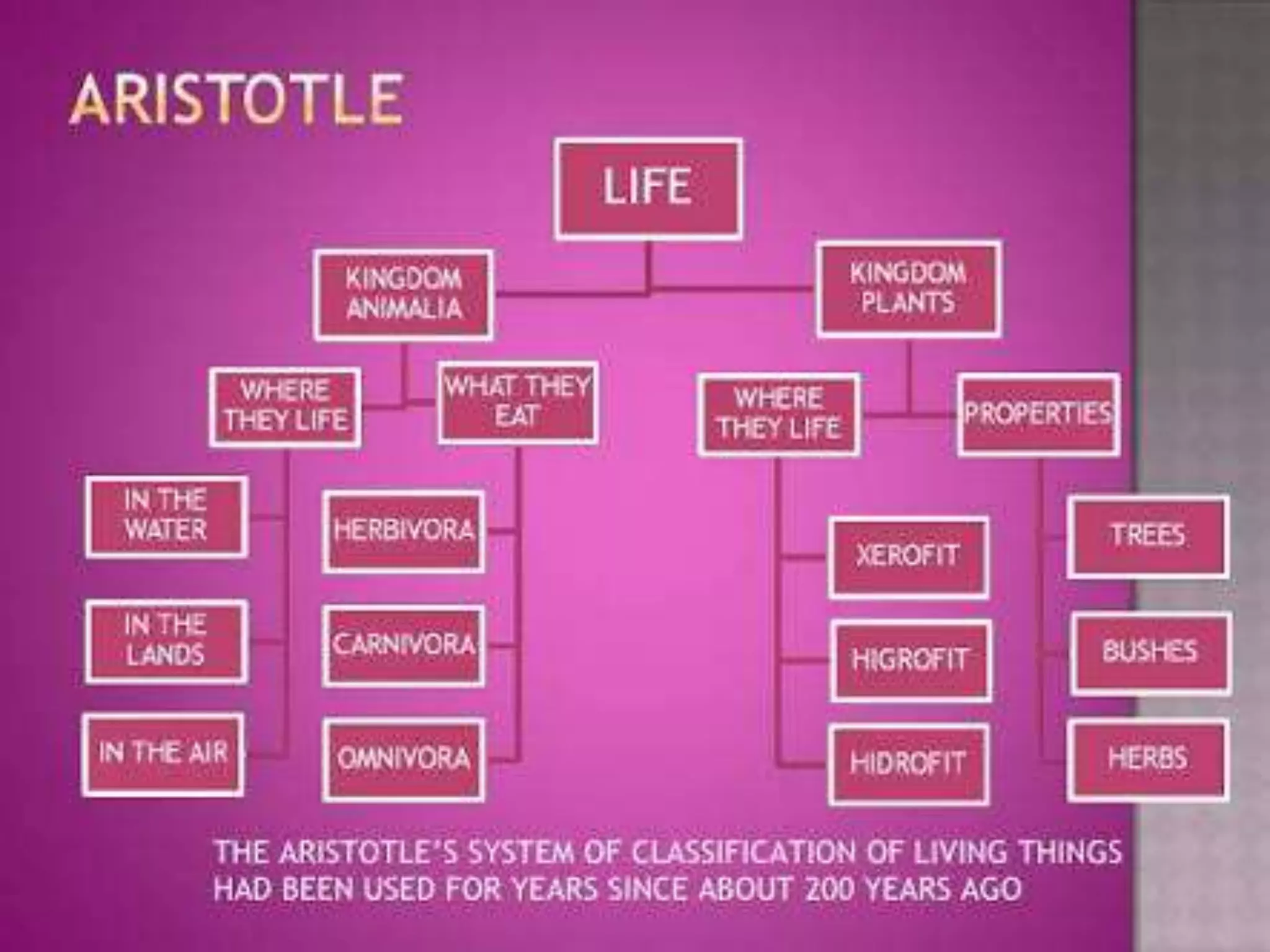Aristotle was a pioneering philosopher born in 384 BC in Greece. He studied under Plato at Plato's Academy and later founded his own school called the Lyceum. Aristotle made pioneering contributions to logic, metaphysics, mathematics, physics, biology and the arts. He wrote on diverse topics and his works were encyclopedic in scope. Aristotle emphasized observation and experience in his scientific method. He believed the aim of education was to attain happiness and goodness. His works had immense influence on Western philosophy and other fields for centuries.



























